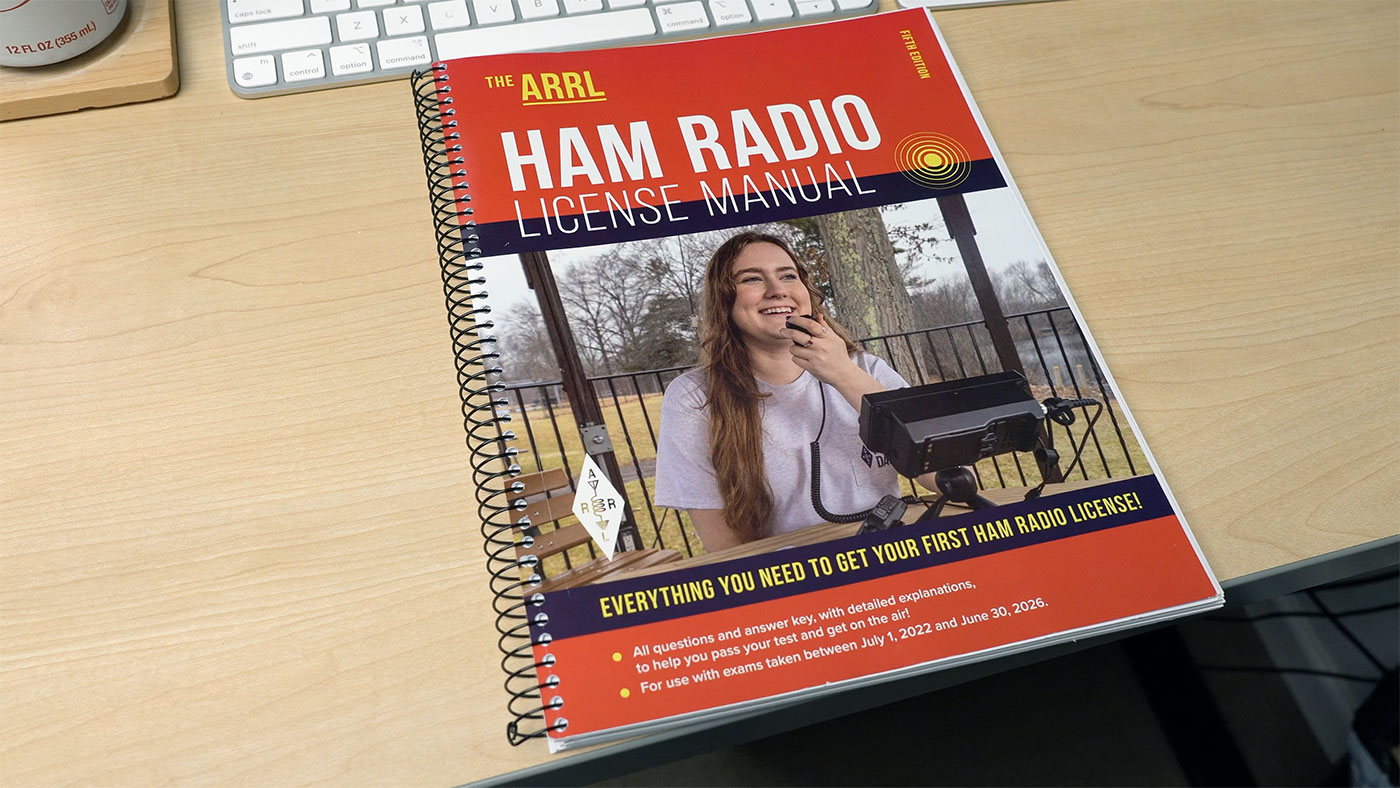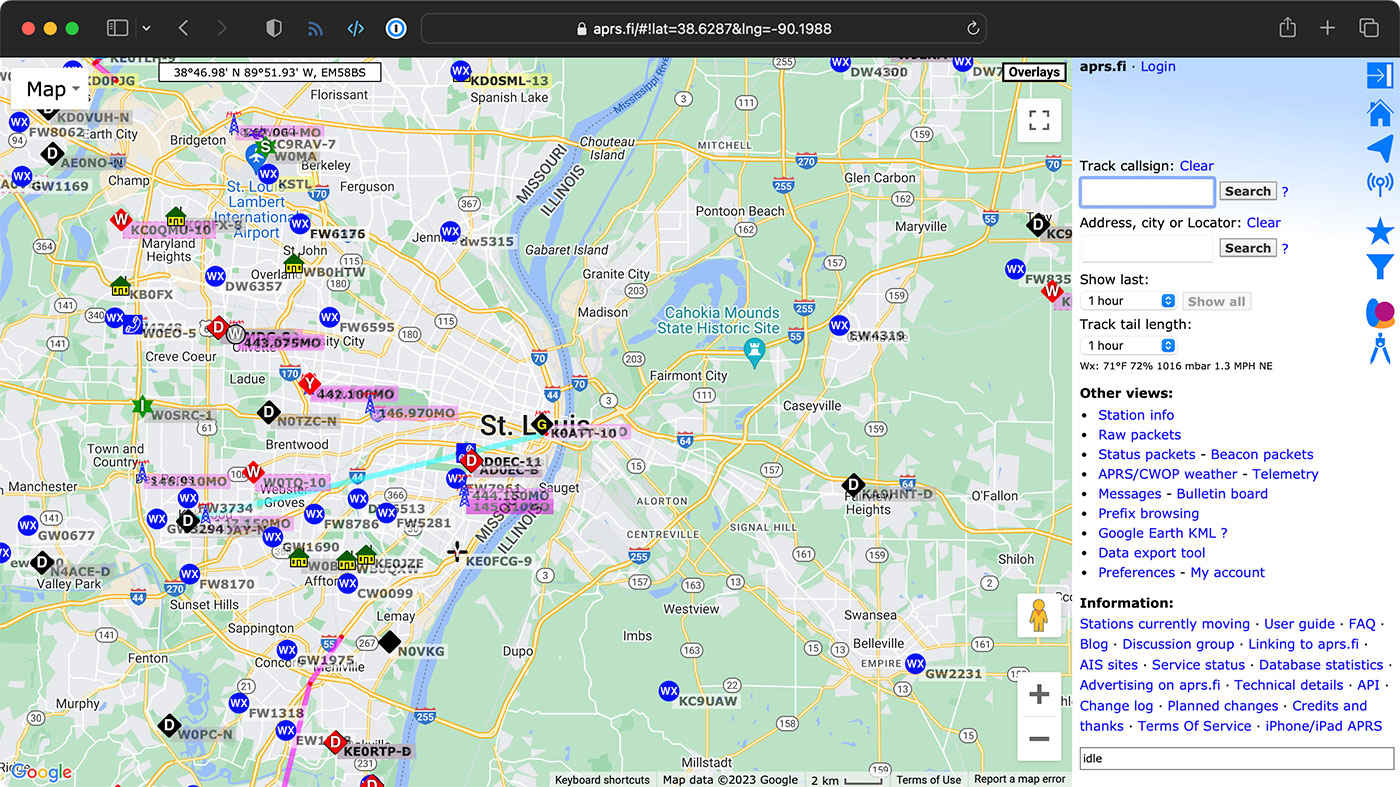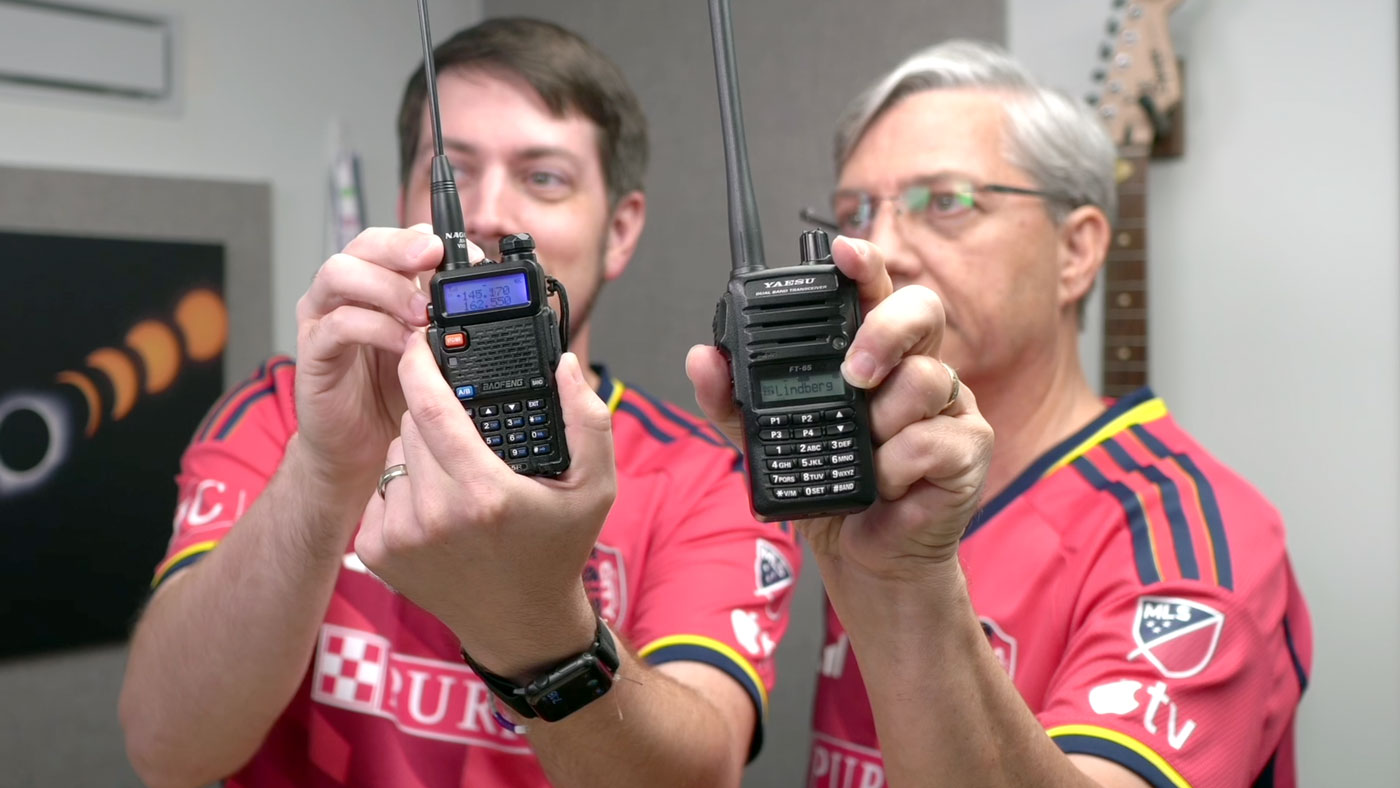After four decades in the broadcast radio industry, I finally convinced my Dad to join me in getting an amateur radio license this summer.
In the US, there's a huge community of amateur radio operators, or 'Hams' for short. There's a whole history to how they got that name, but to me, radio's a lot of black magic.
Throw on top of that the fact that Hams are always slinging around weird terms like QRT, using morse code—or as they call it, CW—and they call themselves weird things like NK7U!
But we cut through all that jargon and learned the basics—well, I did. My Dad went the 'Extra' mile and ran through all three tests, relying on his 40 years of radio experience! We both have licenses now (I'm KFØMYB, and my Dad's KFØMYJ) and made our first contact. Here's a video documenting that entire journey (up to the point I sent out my first QSL card!):
I'll leave it to the video to document our journey (starting about halfway through), but will talk a little more about amateur radio here:
Agencies like the FCC in the US police the airwaves.
We have FM radio here, and technically there's nothing preventing me from grabbing a little 15W transmitter I bought on Amazon and broadcasting my own signal over another station.
But that's not legal. Even if there isn't a station broadcasting on a certain frequency, I can't just turn on my own transmitter, that's called pirate radio, and while that sounds cool, it can create a lot of headaches.
In the US, we have licenses for radio operators because the idea is people who know what they're doing can use the radio waves responsibly. A licensed Ham wouldn't blast out a bunch of noise and interfere with other people's signals (well, at least not intentionally!).
Hams even help in emergencies, when other communications are down. There's the SKYWARN program supporting weather forecasters when there are big storms. There's ARES, the Amateur Radio Emergency Service, a bunch of volunteer Hams who help when disaster strikes.
And a lot of advancements in radio, from antenna design, to digital communication protocols, come out of the Ham community.
There are three levels of Ham operators in the US: 'Technician', 'General', and 'Extra'. Basically, as you skill up, you get access to more frequencies.
And the more frequencies, the more chance you have to do long distance and experimental communication. Like did you know you can bounce a radio signal off the moon from your own backyard? Or there's a ham radio setup on the ISS, whizzing overhead! That thing's called ARISS, or Amateur Radio on the ISS, and it lets you talk directly to astronauts in space!
To say radio offers a ton of fertile ground for learning for a couple guys who love tech is an understatement.
Strange things about Ham Radio
And it's not all deep science, either. Ham radio has all kinds of fun quirks to it.
Like did you know it's illegal to broadcast music over amateur radio bands? Well, except maybe if you sing Happy Birthday directly to another Ham.
On the topic of illegal things: you can't do any business on amateur bands, and what about swearing? **** no! Not allowed.
And what if one of my Dad's radio stations has a transmitter that breaks down. Could you switch to broadcasting on an amateur frequency temporarily? No! Well, unless doing so would prevent harm to humans in immediate danger or for the protection of property.
Ham radio has a ton of fascinating history, and the community is probably smaller today with how ubiquitous the Internet is, but it's still ripe for advancing the science and wonder of RF.
Studying / Preparing

Studying for my exam was actually quite daunting for me. I do software development, and I know my way around code. I also know the basics of electronics.
But take a look at a map like this. This is a map of the APRS, the Automatic Packet Reporting System. Hams eat this stuff up, but what does any of this mean?

I know from meteorology that WX means weather, and if I click on one of those, it looks like a little weather station. So that's cool. But if I click on one of the towers... R60m? antenna HAAT 80ft? C141.3? What does all that mean?
It means a lot. And the Ham community communicates a lot of info in a tiny amount of space.
That was borne out of necessity back in the day, because communication was slow and limited early on, but all that terminology stuck. So studying is really important, if you wanna pass the exam and become a Ham.

And now I have a beginner Technician license, and will work my way up to General after some time. My Dad's already an Extra, so maybe we can work on an EME/moonbounce sometime!
There are definitely many possibilities to explore with digital mode, SDR, and Raspberry Pis, too!
Comments
Welcome to the hobby! I just got into it myself, after wanting to do it for years. Like you I only got my Technician, but working on my general.
The hobby has many dimensions, and it's a lot of fun! Welcome! 73, N4JWW
FB OM
I'm currently reading "The CW Way of Life" to motivate me.
73 DE WC8Q
Well done… here’s your first DX reply
73’s de G8KIO
Congrats! With your license you can run WiFi signals at high ERP. Forget 20dbm, you could run 50dbm! (But don't unless you really need to). Not sure if you knew this already but lots of hams run wireless ISP-like services as mesh networks; I think SLSRC runs a AREDN. I'm sure they'd love your involvement! AE9AW clear.
Jeff, I have all these silly ideas of things to try with the data bands that are available to us, but now I'm worried with your creative mind and Technician license, you're going to blast me out of the water!
The more I learn about amateur radio, the more I start to think that it's kind of still the wild west. It's analog open-source where, if you can get folks to agree to your standards, you're the standard! Especially in digital modes with error correction.
KQ4VWC